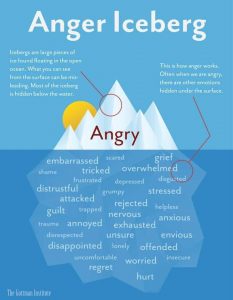
“To truly love we must learn to mix various ingredients – care, affection, recognition, respect, commitment, and trust, as well as honest and open communication […] Love and abuse cannot coexist. Abuse and neglect are, by definition, the opposite of nurture and care” (bell hook 2004)
All week the relationship between fathers and sons, men and boys, and how this impacts on women and children has been with me.
This brought the topic of healthy and unhealthy masculinity to the front of my mind. For me healthy masculinity improves the health and wellbeing of the man and those he is in contact with, whilst unhealthy masculinity does the very opposite.
Firstly, I spent five days on a compassion retreat with five men and fourteen women. We had fascinating conversations about the experience of being a man. For example, the women were really interested in how the self-compassion teachings and practices were affecting the male participants. They were also interested in how this would affect the dynamics of our families.
Yeah, it was interesting to hear how difficult it was for most of the men to be gentle, kind or caring to themselves after years of being criticised and judged as not good enough or just bad. Normally these messages came from terrible relationships with their dad. The women told us how valuable it was to gain insight into the male experience. They then shared their own perspectives on living and working with men. Listening intently, I was struck with just how difficult it seemed to communicate and live with men.
 Finally, I came home to my sons – a father watching and participating in the growth of his sons. Parenting has ignited every emotion I have and I’m always asking myself and other men – am I doing this right? I mean I only have my own experience of parenting to guide me, and do I want to impose that on my sons? So it gave me cause to think of my relationship with my own dad. This week it felt like the causes of healthy and unhealthy masculinity have been hard to avoid.
Finally, I came home to my sons – a father watching and participating in the growth of his sons. Parenting has ignited every emotion I have and I’m always asking myself and other men – am I doing this right? I mean I only have my own experience of parenting to guide me, and do I want to impose that on my sons? So it gave me cause to think of my relationship with my own dad. This week it felt like the causes of healthy and unhealthy masculinity have been hard to avoid.
By pure serendipity, I read this passage from Shantaram, which connected deeply with these conversations, and my own experience:
“‘Linbaba’, Khader replied, the older man’s voice rumbling over the name the slum-dwellers used, ‘I like you.’ My face was flush with emotion. It was as if my own father had said the last three words to me. And my own father never did… In my most innermost, secret heart, a small boy that I used to be was wishing Khader was my father – my real father…”
Dad, Do You Like Me? Dad, Am I Good Enough?
The father is the first man who sets the framework for what it means to be a man – and who often expresses whether his son is worthy, not just as a son, but has a human being. Sons need to know they are more than the target of their father’s disapproval, criticism, frustration, violence, or power. They need to hear and feel their worth, not grow up feeling like an interruption or an irritant in their dad’s life.
 In my experience, many men do not receive their dad’s validation and approval. This breeds shame – “there is something wrong with me because my dad does not see, hear or love me”. Often anger will be used to hide this shame, and this anger will be directed at themselves as an inner critic and/or anger will be projected at the people around the man. They learn to be terrified of vulnerability, emotionally closed, emotionally unaware and emotionally illiterate. Being emotionally closed stands in the way of the intimacy required to really develop loving relationships.
In my experience, many men do not receive their dad’s validation and approval. This breeds shame – “there is something wrong with me because my dad does not see, hear or love me”. Often anger will be used to hide this shame, and this anger will be directed at themselves as an inner critic and/or anger will be projected at the people around the man. They learn to be terrified of vulnerability, emotionally closed, emotionally unaware and emotionally illiterate. Being emotionally closed stands in the way of the intimacy required to really develop loving relationships.
This infects their relationships with other men, with women, and with their own children. Men with this shame will then wonder through life looking from validation from others at work and play because they cannot validate or feel content as themselves. But no matter the external validation, they remain trapped by their unresolved wounds created during the relationships with their fathers.
A Way Forward
Not every father and son experiences this dysfunction, and that’s wonderful. But troubled male relationships seem to be a recurring theme in my work. As a therapist I meet a lot of men struggling with anger but have no idea why.
Mindfulness offers a way to witness what drives our interactions with others. Learning to be present with silence, stillness, and spaciousness helps us see the critical thoughts and emotions that shape how we engage with ourselves and others. When you can see these patterns clearly, and develop kindness and compassion toward yourself, you can make conscious choices about how you engage – rather than automatically repeating old patterns learned in childhood.
Cultivating unconditional love for myself has been a long journey but worth it. Offering unconditional love to your children will give a son the confidence to be himself and to explore life. It means that the son feels the love, affection and care of his dad. The son knows the relationship is not about power over weaker family members. Rather it is power with each other – a relationship of mutual respect. As I quoted bell hooks to illustrate this
“To truly love we must learn to mix various ingredients – care, affection, recognition, respect, commitment, and trust, as well as honest and open communication […] Love and abuse cannot coexist. Abuse and neglect are, by definition, the opposite of nurture and care”
It allows for honest communication: “I love you, can we talk about what you are feeling?” or “I find this situation/behaviour/language difficult can you tell me what is going on for you? I want to know because I care about you.” Our children will push us to our limits and beyond. But without unconditional love, the father-son relationship becomes trapped in power struggles and conflict – patterns that ripple out into how men relate to other men, women, and the next generation of boys.
I encourage fathers to attend to their own childhood wounds, so that they do not impose them on their sons. Breaking intergenerational trauma is so important
Be the change you wish to see in the world. Remember: another world is possible.
